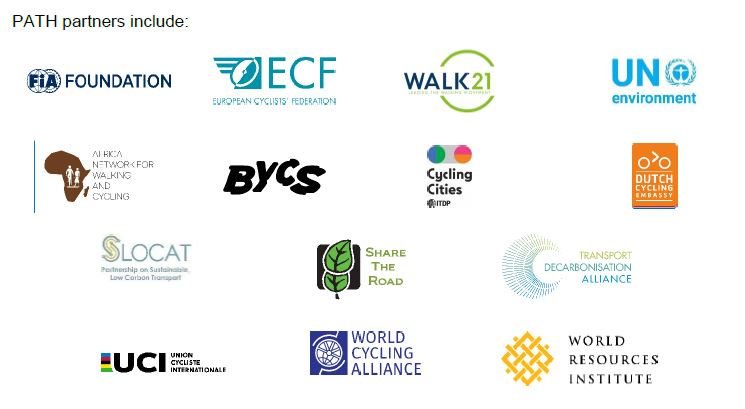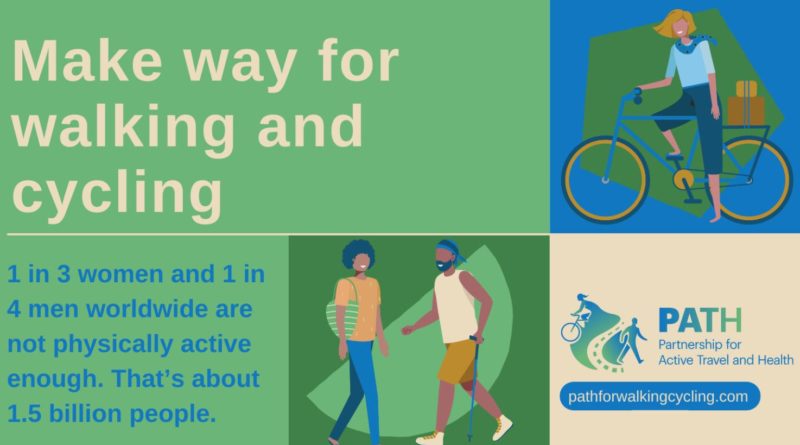Active travel could account for 75% of urban trips, says study pitched to COP27 delegates
With the COP27 climate conference underway numerous cycling and transport organisations have co-signed a Partnership for Active Travel and Health campaign urging a serious rethink on the forms of transport prioritised in policy and funding globally.
The newly-launched Partnership for Active Travel and Health is a global coalition made up of Walk21, the European Cyclists’ Federation (ECF) and the UN Environment Program (UNEP), with the FIA Foundation coordinating and funding the effort.
To demonstrate the case for walking and cycling, PATH commissioned economic research firm Decisio to produce a new headline report entitled Make way for walking and cycling. The report, also launched today, draws on a wealth of existing research and studies to highlight walking and cycling’s benefits and enormous further potential for the climate, air quality, health and well-being.
Forming the basis of the action plan the organisations would like to see, the report’s findings include the stat that urban trips are expected to more than double between 2020 and 2050. 60% of those were found to be shorter than 5km and a quarter are less than 1km, yet walking and cycling currently make up just a third of these trips, and more than half of them currently travelled by motorised vehicles. This mirrors similar findings produced by the UK’s Cycling Marketing Board and #BikeIsBest.
Taking into account these transport habits, it is concluded that cycling and electric bike riding in particular has a great propensity to quickly bring about the changes that will be on the COP27 agenda; namely lowering transport emissions and reliance on oil.
“If electric cycling is factored in (extending distance covered to 10km), the potential for active travel exceeds 75% of all urban trips in the world,” writes the report, adding that enabling these behaviours to seed will “require actions for infrastructure, campaigns, land use planning, integration with public transport and capacity building.”
“As highlighted in the report, 60% of urban trips across the globe are shorter than five kilometres, with more than half of them currently travelled by motorised vehicle,” said Jill Warren, CEO of ECF. “Walking and cycling could replace a significant proportion of these short trips. Electric bicycles expand this potential even further.”
Road vehicles presently account for nearly three quarters of transport CO2 emissions and these numbers are increasing; 50 billion tonnes of CO2 will be emitted by urban transport in the next 30 years on the present trajectory.
Carly Gilbert-Patrick, UN Environment Programme added: “Prioritising active mobility has historically been overlooked. That is why UNEP is proud to be a part of PATH. By taking multi-stakeholder action to investing more in walking and cycling we can contribute to achieving climate goals for people and planet.”
On the occasion of the COP27 Climate Conference, taking place November 6-18 2022 in Sharm El Sheikh, Egypt, the PATH partnership is also publishing a joint open letter calling on governments and cities to commit to prioritising and investing more in walking and cycling, through Nationally Determined Contributions and integrated and coherent strategies, including plans and concrete actions for infrastructure, campaigns, land use planning, integration with public transport and capacity building. Read the full letter here.




